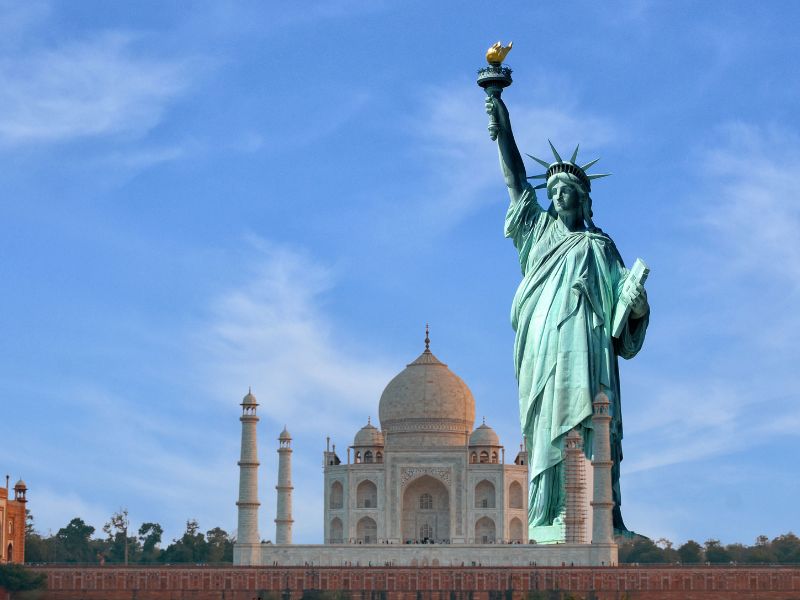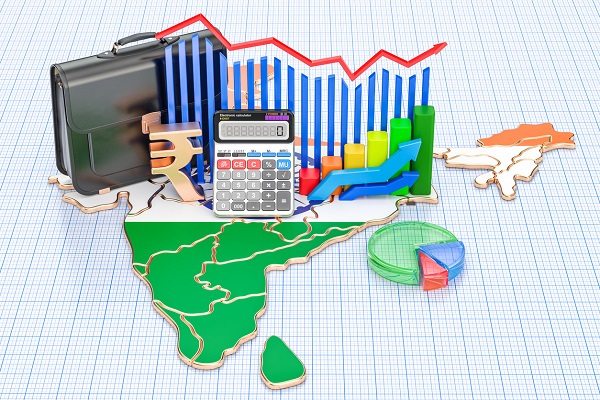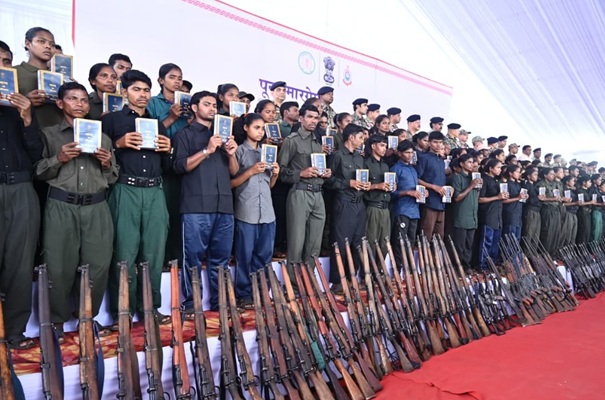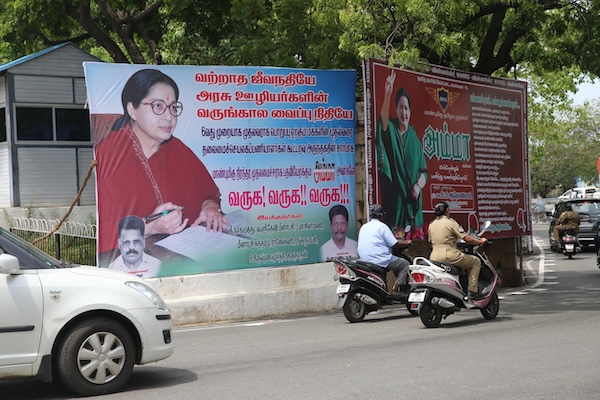.png)

Suresh, a seasoned investment banking advisor, guides global conglomerates on South Asia strategy, leveraging expertise in venture capital and acquisitions.
February 3, 2025 at 2:54 PM IST
"Civilization and its well-being, as well as business prosperity, depend on productivity and people's efforts in all directions in their own interest and profit.” - Ibn Khaldun
This above thought is well articulated by modern positive political theorists.
In their paper "Combining ideology with narrow self-interest in positive political theory", Sandra Dzenis and Filippe Nobre Faria posit that narrow self-interest underpins the standards conception of homo economics and tends to have a materialistic orientation. When theorists assume that material interests are the sole drivers of political action, ideology becomes irrelevant as a motivating factor, and thus, Narrow self-interest cannot accommodate ideology.
Donald Trump’s return to the White House as the 47th President of the United States exemplifies this concept of narrow self-interest, where the broader ideology becomes irrelevant, and material interests are the sole drivers of political action.
His rhetoric of protectionism has become a governing principle, creating challenges for emerging markets, including India. Trump’s recent threats to target key Indian exports like pharmaceuticals, textiles, and IT services underscore the urgency for India to adjust its trade strategy.
India’s economy faces significant hurdles. Capital is steadily flowing out of emerging markets as the 10-year Treasury rate, with yields as high as 4.60%, attracts global investors. Domestically, India’s GDP growth slowed to 5.4% in the second quarter of FY25, with full-year estimates ranging between 6.3% and 6.5%. Compounding this are the trade deficits: the overall deficit worsened by 14.1% YOY, reaching $79.5 billion for the nine-month period ending 2024.
Although an 88% year-on-year spike in April-September NRI deposits offers some respite, it cannot mask structural trade imbalances. Imports, dominated by petroleum, metallurgy coke, and gold, grew by 5.15% year-over-year, totalling $532.48 billion for the nine-month period ending 2024. Meanwhile, exports saw a meagre increase of 1.59% during the same period, highlighting the urgency for India to diversify and expand its trade relationships.
South-South Engagement
India’s economic resilience depends on forging strategic bilateral trade agreements within the Global South. Partnerships with nations such as Kuwait, Turkey, Malaysia, and Vietnam can provide the much-needed impetus to counterbalance global economic headwinds.
Kuwait: The Prime Minister’s recent visit to Kuwait signals a thaw in relations strained since the Gulf War era. Kuwait’s $8.3 billion trade surplus with India in FY 2023-24, driven by oil and gas imports, could be balanced by enhancing exports of organic agriculture, poultry, shrimp, and electrical machinery. Additionally, the $6 billion in remittances from Indian expatriates further underscores the value of this partnership.
Turkey: Bilateral trade with Turkey declined to $10.4 billion in FY 2023–24, reflecting political tensions over Kashmir. However, Turkey’s interest in joining BRICS and its regional divergences with the U.S. offer India a chance to reset relations. Deeper engagement in industrial goods, tourism, and IT services could help revitalise this partnership.
Malaysia: With $20.02 billion in bilateral trade, Malaysia remains one of India’s top trading partners. Yet, a significant trade imbalance persists. By addressing anti-dumping duties and seeking greater access to Indian agricultural products, textiles, and medical devices, India can create a more equitable relationship.
Vietnam: Despite trade stagnating at $14 billion annually, Vietnam’s heavy reliance on pharmaceutical imports offers India a clear opportunity for expansion. Collaborative efforts in engineering goods, chemicals, and auto components can further strengthen ties.
The Need for Pragmatic Policy
India cannot afford to engage in tit-for-tat responses to Trump’s protectionist measures. While such actions may garner political mileage, they rarely yield long-term benefits. Instead, a pragmatic approach is to stay focused on diversifying trade relationships.
India must also adopt strategic flexibility in foreign policy to ensure that past political differences do not impede economic opportunities. By prioritising bilateral trade agreements in the Global South, India can not only mitigate the immediate impacts of Trump’s tariffs but also secure a sustainable path for economic growth.
As global economic uncertainties persist, India’s ability to adapt and deepen its trade partnerships will determine its success. Strengthening ties with nations like Kuwait, Turkey, Malaysia, and Vietnam offers a roadmap for narrowing trade deficits and bolstering economic stability.




